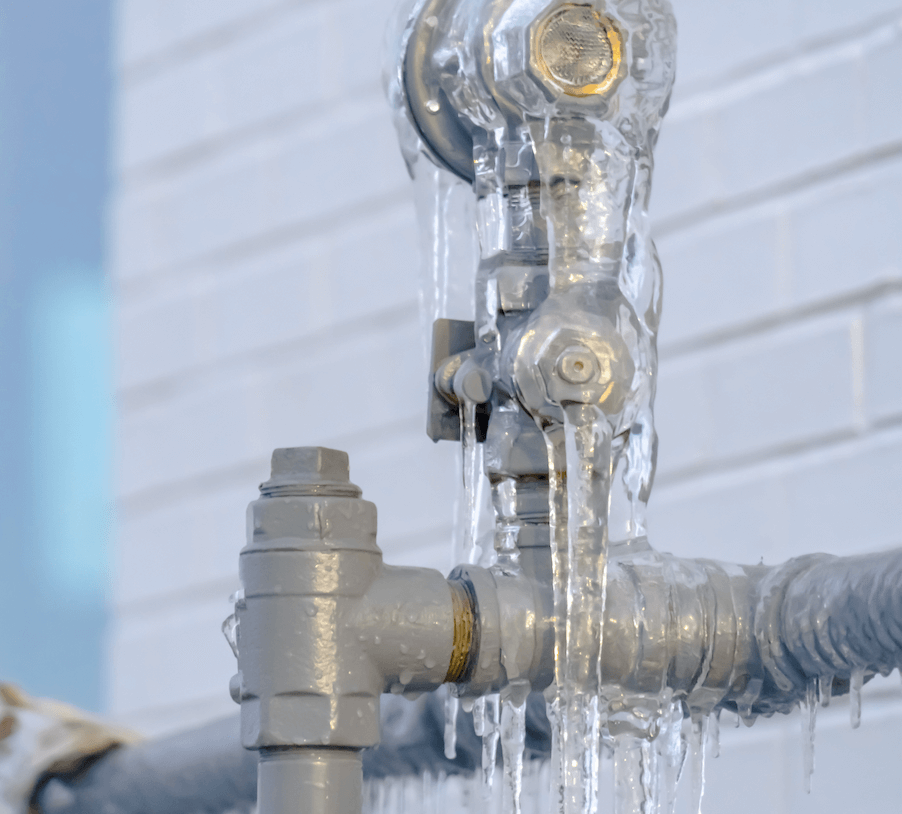How to Defend Plumbing System from Cold Weather: Key Advice
How to Defend Plumbing System from Cold Weather: Key Advice
Blog Article
What're your opinions with regards to Prevent Frozen Pipes ?

Winter can wreak havoc on your plumbing, especially by freezing pipelines. Below's how to avoid it from occurring and what to do if it does.
Intro
As temperature levels decline, the risk of frozen pipes increases, potentially resulting in expensive repair services and water damages. Comprehending exactly how to avoid frozen pipes is crucial for homeowners in cold environments.
Avoidance Tips
Protecting vulnerable pipelines
Cover pipes in insulation sleeves or use warmth tape to shield them from freezing temperatures. Focus on pipelines in unheated or outside locations of the home.
Home heating techniques
Maintain interior rooms effectively heated, specifically areas with pipes. Open cupboard doors to permit warm air to flow around pipes under sinks.
Exactly how to recognize frozen pipelines
Seek decreased water circulation from faucets, uncommon odors or sounds from pipelines, and visible frost on revealed pipes.
Long-Term Solutions
Architectural changes
Take into consideration rerouting pipes far from exterior walls or unheated areas. Include added insulation to attic rooms, cellars, and crawl spaces.
Updating insulation
Buy premium insulation for pipelines, attics, and walls. Appropriate insulation assists preserve constant temperatures and decreases the risk of frozen pipelines.
Shielding Exterior Plumbing
Garden hoses and exterior taps
Detach and drain yard hose pipes before winter months. Mount frost-proof spigots or cover exterior taps with insulated caps.
Recognizing Frozen Pipelines
What triggers pipelines to freeze?
Pipelines freeze when revealed to temperatures listed below 32 ° F (0 ° C) for prolonged durations. As water inside the pipes ices up, it increases, putting pressure on the pipeline walls and potentially creating them to burst.
Dangers and problems
Icy pipes can cause water supply interruptions, residential or commercial property damage, and costly fixings. Burst pipes can flood homes and cause substantial architectural damages.
Indications of Frozen Piping
Determining frozen pipes early can avoid them from rupturing.
What to Do If Your Pipes Freeze
Immediate activities to take
If you suspect frozen pipelines, maintain taps available to relieve pressure as the ice melts. Make use of a hairdryer or towels soaked in hot water to thaw pipelines slowly.
Conclusion
Preventing frozen pipes calls for positive actions and quick actions. By understanding the causes, indicators, and preventive measures, house owners can shield their plumbing during cold weather.
6 Proven Ways to Prevent Frozen Pipes and Protect Your Home
Disconnect and Drain Garden Hoses
Before winter arrives, start by disconnecting your garden hoses and draining any remaining water. Close the shut-off valves that supply outdoor hose bibs and leave the outdoor faucet open to allow any residual water to drain. For extra protection, consider using faucet covers throughout the colder months. It’s also important to drain water from any sprinkler supply lines following the manufacturer’s directions.
Insulate Exposed Pipes
Insulating your pipes is an effective way to prevent freezing. Pipe insulation is readily available at home improvement stores and is relatively inexpensive. Pay close attention to pipes in unheated areas such as the attic, basement, crawl spaces, or garage. Apply foam insulation generously to create a buffer against the cold. You can also wrap your pipes in heat tape or thermostat-controlled heat cables for added warmth.
Seal Air Leaks
Inspect your home for any cracks or openings that could let in cold air. Seal any holes around the piping in interior or exterior walls, as well as the sill plates where your home rests on its foundation. Additionally, make sure to keep your garage door closed unless you’re entering or exiting. Leaving it open creates a significant air leak that can lead to frozen pipes.
Allow Warm Air Circulation
During cold snaps, it’s essential to allow warm air to circulate evenly throughout your home. Leave interior doors ajar to promote better airflow. Open kitchen and bathroom cabinets to help distribute heat consistently around the rooms. If you have small children or pets, be sure to remove any household chemicals or potentially harmful cleaners from open cabinets for safety.
Let Faucets Drip
A small trickle of water can make a big difference in preventing ice formation inside your pipes. When temperatures drop significantly, start a drip of water from all faucets served by exposed pipes. This continuous flow helps prevent the water from freezing. Additionally, running a few faucets slightly can relieve pressure inside the pipes, reducing the chances of a rupture if the water inside does freeze.
https://choateshvac.com/6-proven-ways-to-prevent-frozen-pipes-and-protect-your-home/

Do you enjoy reading up on Winter Plumbing Precautions: Preventing Frozen Pipes? Create feedback further down. We will be pleased to know your feelings about this blog entry. In hopes that you visit us again in the near future. Sharing is nice. Who knows, you may very well be helping someone out. Many thanks for going through it.
Call Today Report this page